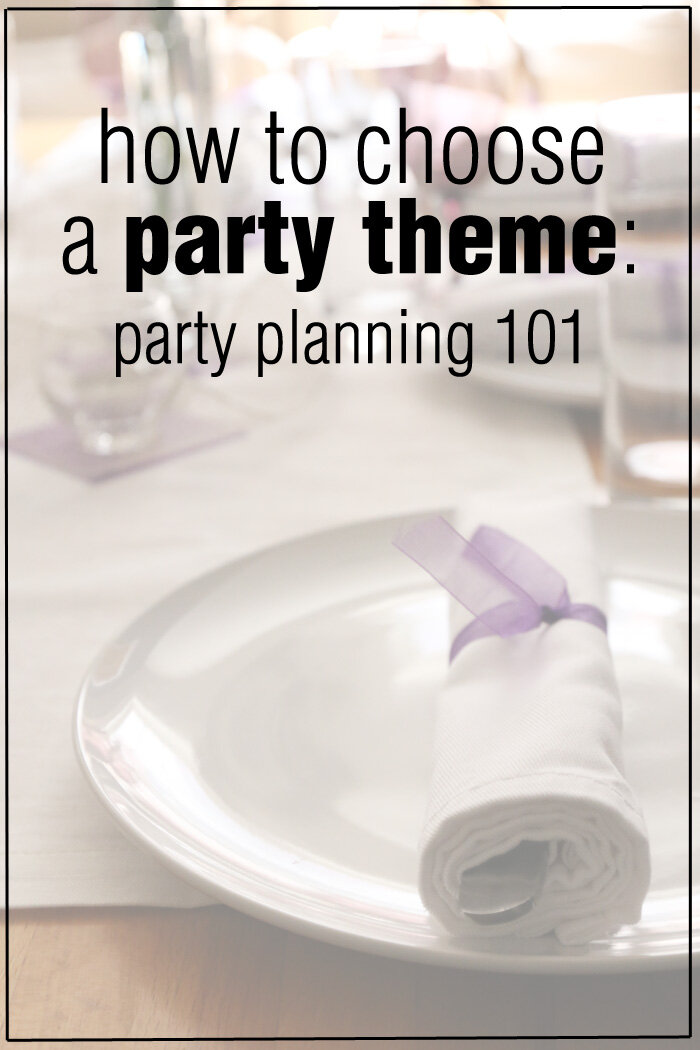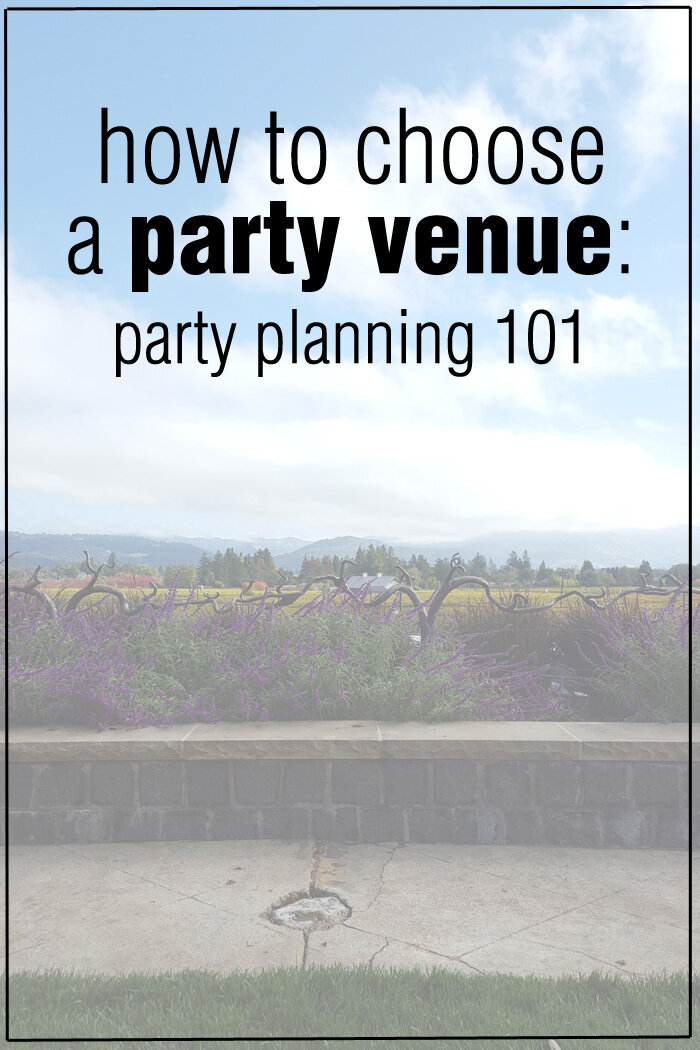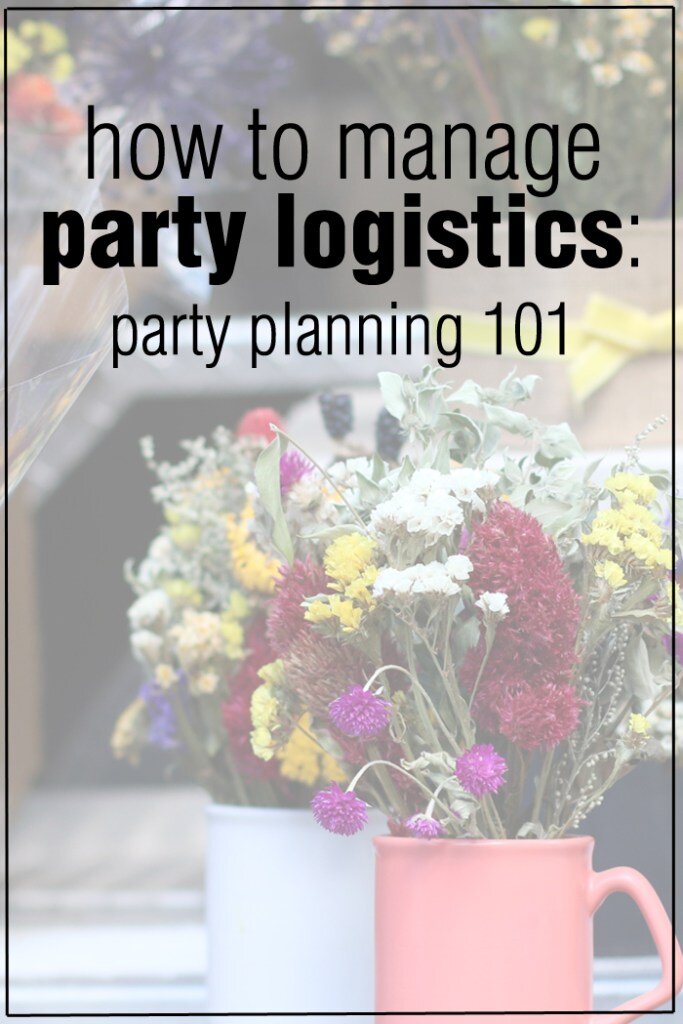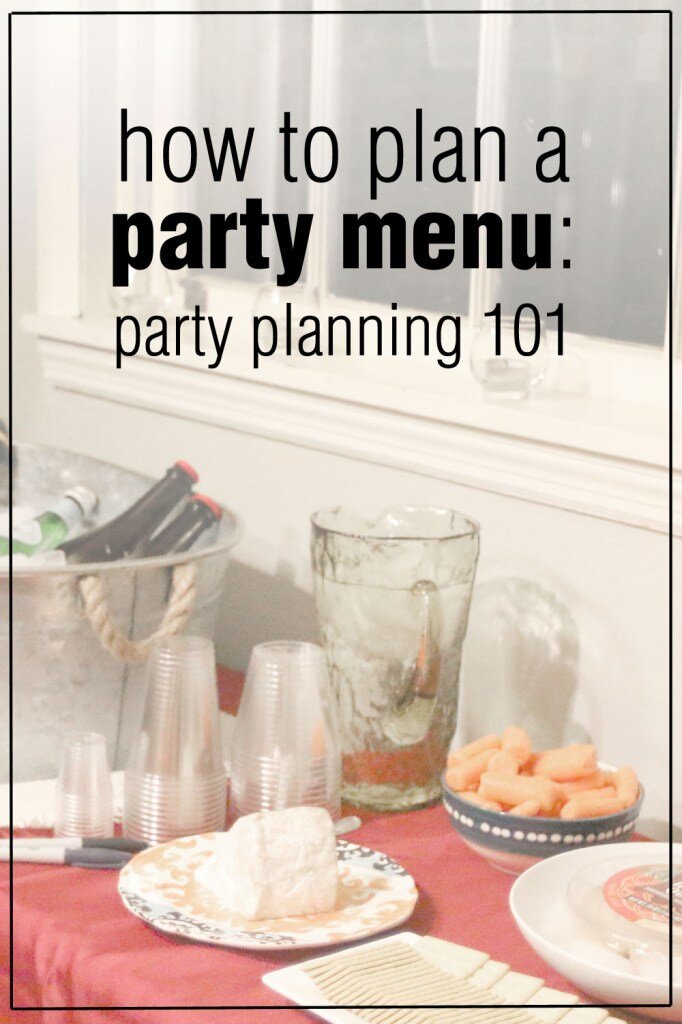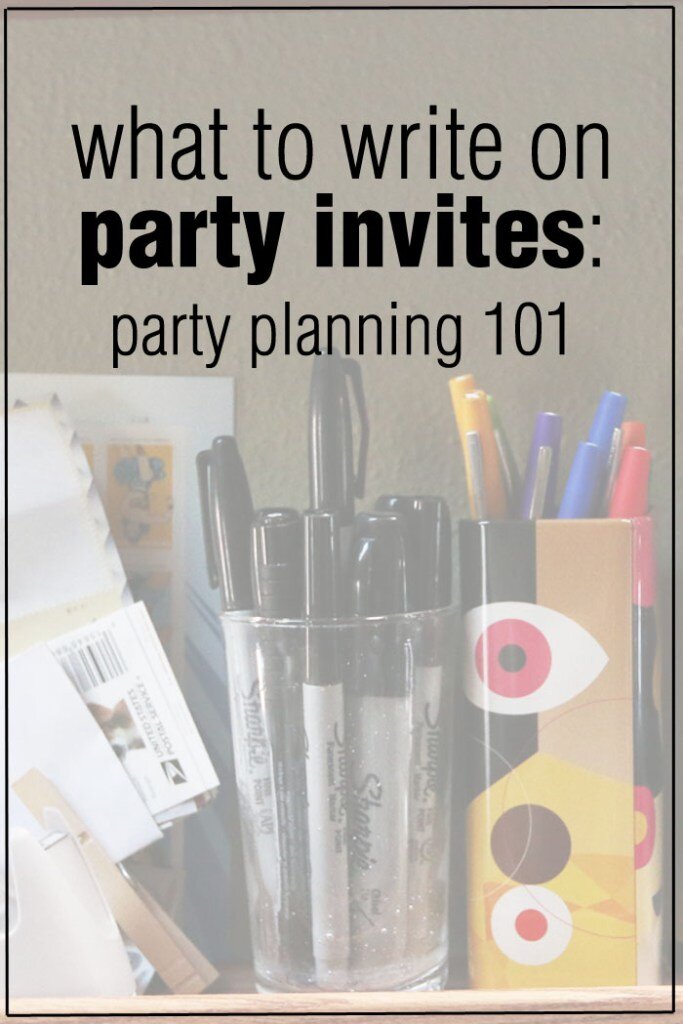Party Planning 101: How to Create a Guest List
Listen to Chrystina talk about her guest list making process on Episode 21 of the Party Ideas & Logistics with Chrystina Noel podcast, above.
Today we’re continuing the Party Planning 101 series with how to make a guest list. We started with how to choose a party theme and then worked our way to how to choose a venue. Once you have the party theme and venue, you already have a good idea of the type of people and amount of people that you’re going to be able to accommodate.
It may seem like a simple starting point, but there are enough things to consider when you make a guest list that this deserves a post of its own.
The first question you want to start by asking yourself is, “am I paying for each person or are they each paying their own way?” If you are paying, now is a good time to roughly look at your budget and see how many people you will be able to accommodate. Once you know this, you can figure out you’ll be able to answer the who and how many question for most parties. For example:
A spa party in your living room: you can probably accommodate 6-12 guests who like doing feminine things
A bowling party at the boutique bowling alley down the street: you will probably need to some back-of-the-napkin math to see how many people you can accomodate – and then invite people who like activities
A beer and cheese party in your living room: you can probably accommodate 8-15 guests who appreciate good beer and/or cheese
A soccer party at the park down the street: you can probably accommodate a large group of people, but ideally it will be however many people you need for each team plus a few substitutes that enjoy being active in their day-to-day life
A murder mystery party in your house: this number of attendees is derived based on the game you choose to play – and make sure that you invite people who will enjoy role playing for the evening
A nice dinner out at a restaurant: you will probably need to do some back-of-the-napkin math to see how many people you can accommodate – or if you’re not paying, choose a number of people that will easily be able to enjoy each other’s company – and then look to the foodies and good conversationalists in your life to fill the table
A make your own pizza party in your kitchen: the limiting factor for this party is probably how many pizzas you can fit in your oven at once to have everyone eat at a reasonably similar time – and of course, you can probably invite anybody to this party because who doesn’t like making your own pizza?
Once you have a general understanding of what direction you’re heading, you can start to finalize the guest list with the following steps.
Step 1: Write down everybody you would possibly invite.
This is the fun part where you can write down all possible attendees. Think about who you’ve seen in the past week, think about who you wish you’ve seen in the past few months. Go through your phone contacts and look through your recent Facebook messages. Check who your top emailed contacts are and look through the stack of business cards sitting in the corner of your desk. Make sure that you consider plus ones and children as well. Once you have a full list of people that could possibly attend, it’s much easier to figure out the best attendees for the party.
I always use an Excel spreadsheet and sort people into groups/columns of how I know them. This way I can make sure that everyone knows at least one other person at the party (or has something in common with them that they can talk about while they’re filling up their wine glasses). It also helps you to make sure that you don’t forget anybody in a general category.
Every time I’ve messed up the guest list for a party, it’s because I didn’t spend enough time writing down all the possible attendees. I’ve thought, “oh, I know who usually comes to my parties” and I’ve ended up leaving out some key folks that should have been invited. It’s always a bummer when that happens
Step 2: Narrow down the list.
Once you see the list of everybody you could possibly invite, you have a better look at the big picture. Some names may obvious come together. You may have been looking to introduce your co-worker who loves board games to your neighbor who has been looking for a new Scrabble buddy. Jon and Jamie might both currently be planning trips to France. The party may not really be female- or male-oriented. The party may not be suitable for children. Take a look at the list overall and decide what the best fit for your party is. Here are two tips when narrowing down the list:
I like to always make sure that there are a few people on my list that I know are okay talking to anybody. They’re super useful people to have around, especially if all of your guests don’t already know each other. Everybody on your list doesn’t need to know everybody else, but having a few of these connectors or having activities planned can totally ease that transition. More on that in months of Party 101 to come.
If you’re planning a party where you need a specific amount of attendees (a murder mystery party, a board game night where you want to play 7 Wonders at full capacity, etc) and/or you’re dishing out a lot of money per guest make sure that you invite people that you know are reliable. Everybody has those friends that you know tend to back out last minute, so a party where you are targeting a specific number of attendees or need to pay if somebody doesn’t show up is probably not the time to invite those folks.
You’ll notice that in the introduction to this blog post I said that we were trying to figure out how many people you could accommodate, not invite. That’s because unfortunately, not everybody is going to be able to come to your party. (A total bummer, I know.) If there are super specific people you want there, make sure to check in with them before choosing a date. Otherwise, you’re probably going to end up with a hodge podge of your invite list.
In my experience, as a 28-year-old living in a city, I have found that if I invite 40 people to a party one to two months out, 20 people (50%) with RSVP yes, and then around 12 (60% of those who said yes, 30% of those you invited) will show up the day of the party. Now, I wouldn’t use those statistics as a rule of thumb, you have to figure out what works in your own crew. I asked a friend who lives out in the suburbs whose friends hang out together quite often and she said that for a major event (like a 30th birthday party) she gets about an 80% turnout, whereas if it’s just a regular event she gets about a 50% turnout.
Start small, see if you can gauge roughly how many usually say yes, and you can build up from there.
Step 3: Finalize the guest list.
Take a look at whoever you’ve circled, starred, and highlighted on your original guest list. Make sure that you’ve allowed for people bringing plus ones and/or their kids to the party (if you so choose). And that’s it – you’re done.
Things you shouldn’t spend too much time worrying about.
Even though you’ve finalized the guest list, remember that it’s technically a rolling invite list – and not in that A-list, B-list kind of way. If you genuinely forgot somebody, you can always catch somebody in person or give somebody a call to say, “you know what, you should totally come to this party I’m having” without it being too awkward.
This is a good time to bring up tiered invites. And here’s the thing. I’m not even really sure they’re tiered. What I usually find is that I end up with a few small groups of people who already know each other and I can’t invite one without inviting everyone, so I may just not invite the whole group on Day 1. Sometimes I will send out the invites to the group who I think the party applies the most to, get a feeling on whether people will be able to join and then 1-2 days later send an invitation out to the second group. They’re not quite tiered, you just want to make sure that you have room for enough people so everyone knows somebody there. Does anybody have any thoughts on this? Since it’s a wedding and not a party, I say just host a second party for the second group.
The only instance I can think that it’s worth making the guest list before you choose the venue is a wedding. A wedding is an event where you want everybody there who can possibly be there to share your big day with all of the important people in your life. A random party at your house? Don’t put that much pressure on yourself. If you’re new to hosting parties start small, keep it simple, and don’t worry if you can’t invite all of your friend groups to the same party. One day you can either (a) work up to that, or (b) get yourself a bigger apartment so that they’ll all actually fit.
Don’t bother trying to get a solid ratio of males to females. Depending at what stage of your life you’re in, things are going to change. If there’s only one outlier, maybe consider not inviting them, but in general, it’s up to the attendees if they want to join in on the fun. (If you use an online invitation tool like Evite, others can even see who else has been invited so they can make their decision according to how they feel comfortable.)
Things you should spend some time thinking about.
If everybody you’re inviting to the party is in a couple, make sure you give the single friends an option to bring a plus one (a friend, a romantic partner, a co-worker, whatever).
Now’s the time to start gauging if there are any people who have specific diets. It probably shouldn’t affect the invite list, but just make a mental note for later.
If you have a really big group of friends and you’re worried about hurting people’s feelings, I would try to figure out if there’s a logical way to split the group. Whether that’s boys/girls, beer drinkers/wine drinkers, people who like to stay up late/people who get up early, I would find a very obvious split so that you have an answer if anybody asks. When I said this to Ben he said, “so you’re really just saying plan more than one party.” Yeah, I guess so…
–
I was recently asked if you actually need a guest list for your party. Technically, the answer is no. There’s no reason you actually have to do this step before inviting people. I’m just kind of scatterbrained and frazzled sometimes. (Like that time I made an entire party list and forgot to put my boyfriend at the time on the list.) So if you have a group of friends that are the only folks you would invite to a party, I still recommend writing it down, just keep the list of paper as your reference guide for when you send out the invitations. And here’s to all of you with way better memories than me.
Now you have your party theme, party venue, and guest list, so it’s time to start sending out the invitations. Stay tuned for next month’s Party Planning 101 post to find out what information you should be including on your party invitation.
Party Planning 101
Continue on with more party planning 101 with the following posts:

